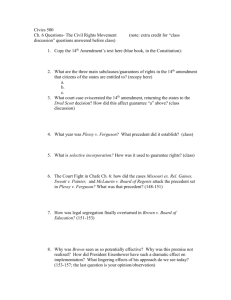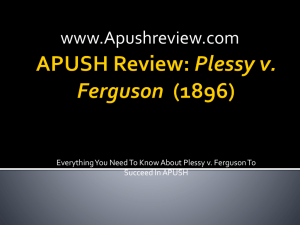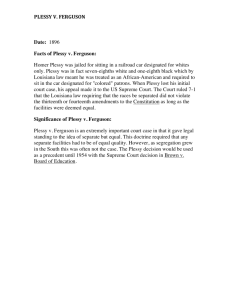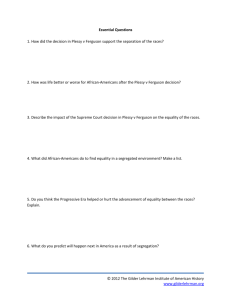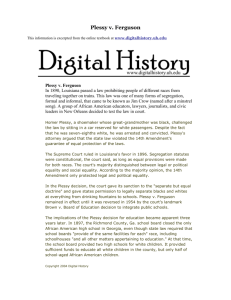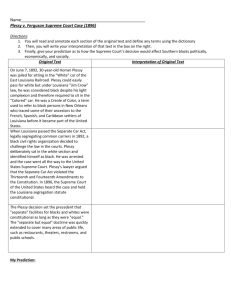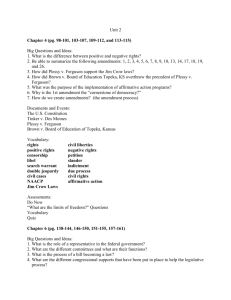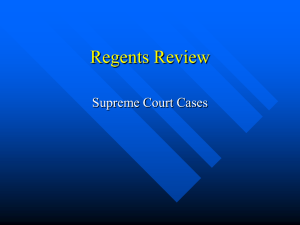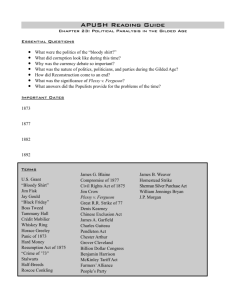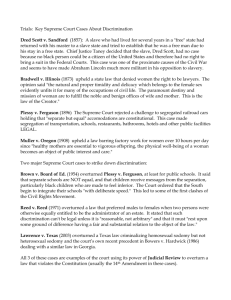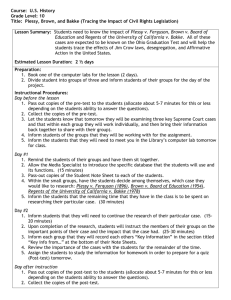FILM: The Road To Brown Questions relating to yesterday's notes
advertisement
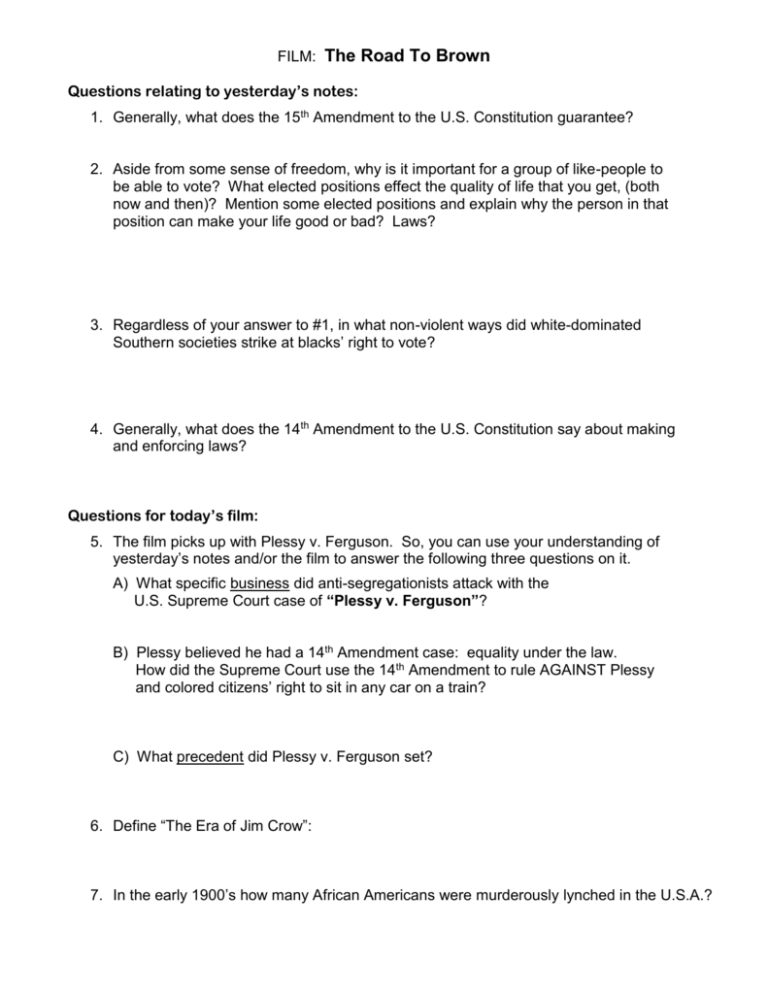
FILM: The Road To Brown Questions relating to yesterday’s notes: 1. Generally, what does the 15th Amendment to the U.S. Constitution guarantee? 2. Aside from some sense of freedom, why is it important for a group of like-people to be able to vote? What elected positions effect the quality of life that you get, (both now and then)? Mention some elected positions and explain why the person in that position can make your life good or bad? Laws? 3. Regardless of your answer to #1, in what non-violent ways did white-dominated Southern societies strike at blacks’ right to vote? 4. Generally, what does the 14th Amendment to the U.S. Constitution say about making and enforcing laws? Questions for today’s film: 5. The film picks up with Plessy v. Ferguson. So, you can use your understanding of yesterday’s notes and/or the film to answer the following three questions on it. A) What specific business did anti-segregationists attack with the U.S. Supreme Court case of “Plessy v. Ferguson”? B) Plessy believed he had a 14th Amendment case: equality under the law. How did the Supreme Court use the 14th Amendment to rule AGAINST Plessy and colored citizens’ right to sit in any car on a train? C) What precedent did Plessy v. Ferguson set? 6. Define “The Era of Jim Crow”: 7. In the early 1900’s how many African Americans were murderously lynched in the U.S.A.? 8. True or False: Bravery and valor by black regiments in WWI brought African Americans more respect by American communities and Congress. 9. Aside from the law school, with what potentially powerful American societal organization did Mr. Houston marry his cause? 10. What public institution did Houston feel was the key to attacking Jim Crow? (post office, army, railways,....what?) 11. Houston had a 2-Stage attack strategy against the Plessy precedent. Just jumping in and trying to get a 20th Century court to reverse the older Plessy ruling wouldn’t work; he’d be going against “precedent.” A) So, Charles Huston decided he would first target …what… part of the Plessy precedent? (--what part of the catch-phrase?) B) After many rulings that would undoubtedly go his way in these cases, he then planned to use all such rulings as a kind of “precedent” to fully attack the entire Plessy ruling. Explain: 12. (Gaines v. Missouri) What’s the significance of getting a case heard before the U.S. Supreme Court versus a state’s supreme court? 13. What did a law school in Oklahoma do with a black student of whom they were forced to let attend? 14. Who was the first African American to enter “the Majors” in “America’s pass-time”? 15. Brown v. Board of Education was a consolidation of how many similar cases across the country? 16. What’s the strategic difference about Brown v. Board of Education as compared to all the previous cases that Huston and the NAACP took on? 17. Who was the NAACP’s chief lawyer for this case? 18. What was the stature of the lawyer defending the schools on segregation? That is, how skilled was he? 19. After a long wait for the Court’s ruling, was the old Plessy v. Ferguson case basically “overturned”? 20. So the Supreme Court has said that segregation in schools is unconstitutional after all. But now how can the NAACP lawyers really use the Brown case ruling?
